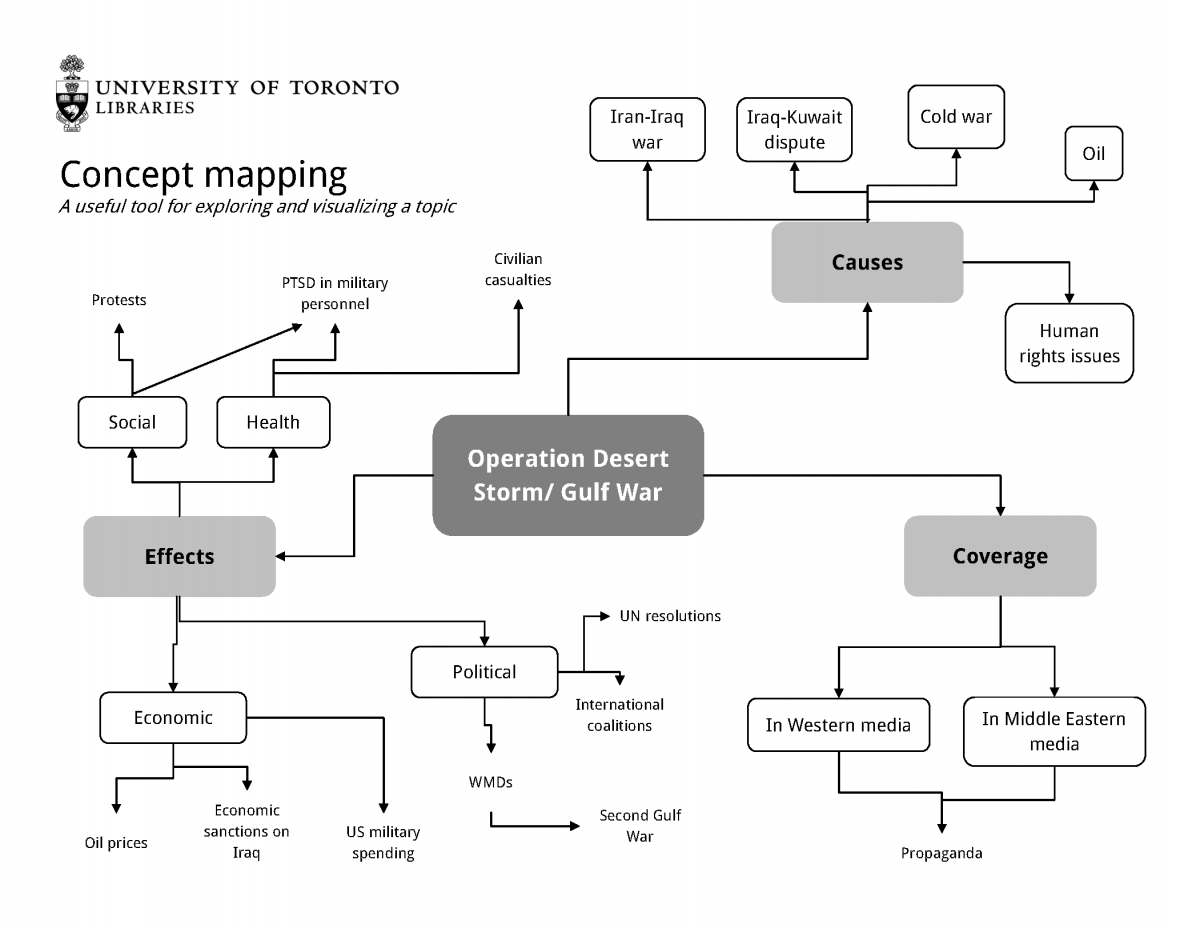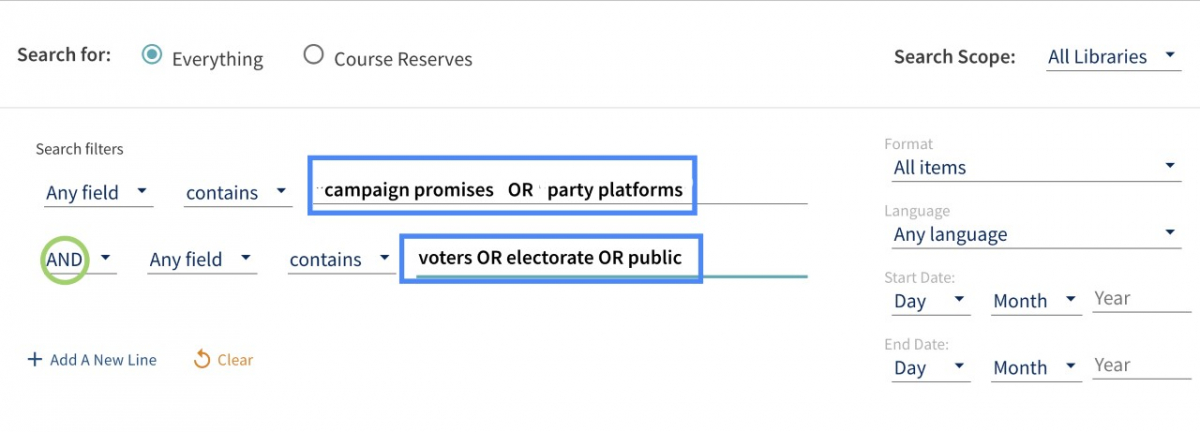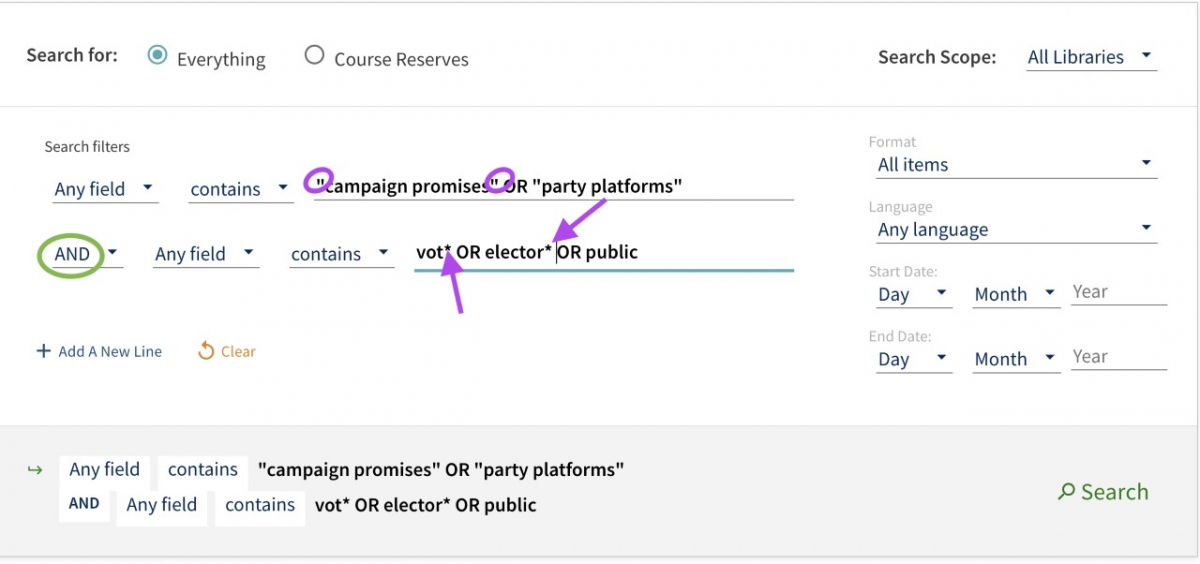Searching for scholarly sources is different from searching through Google. It's not efficient to type in full sentences, so you'll need to distil yout essay question, topic, or thesis into keywords.
1. Write out your essay question, topic, or thesis as a sentence
How do campaign promises sway voters?
2. Cross out the words that aren't concepts or proper names
Avoid searching with adjectives, adverbs, articles, pronouns, qualifiers, punctuation, and (most of the time) verbs. Basically, the smaller words in a sentence.
How docampaign promisesswayvoters?
3. Come up with synonyms for the keywords you have
Google your concepts to come up with synonyms or ask Copilot to generate some for you. Keep a running list of possible keywords. As you start to find scholarly sources, make a note of any new relevant keywords you can add to your search.
- Campaign promises
- party platforms
- Voters
- electorate
- public
Concept maps can help you visualize the different aspects of your topic and come up with keywords you might not have thought of originally. Not all of the words in your map will be good keywords like in the map below where "effects" and "causes" as listed, but they'll help advance your thinking.

4. Combine your synonyms with AND and OR
If you have more than one concept, you'll have to use separate rows of an advanced search form for each concept.

You can also use parenthesis to create a keyword search string.
(Campaign promises OR party platforms) AND (voters OR electorate OR public)
5. Add truncation and quotation marks around multi-word phrases
Quotation marks ensure that any keywords that are more than one word will be treated as a unit instead of separate words. Truncation ensures that you get several versions of the root word.

You can also type it in a single search box if you use parenthesis.
("campaign promises" OR "party platform") AND (vot* OR elector* OR public)
Final thought
It might take a few tries to get the right mix of keywords and ways of combining them. The library is here to help you figure it out. Don't hesitate to ask for advice.